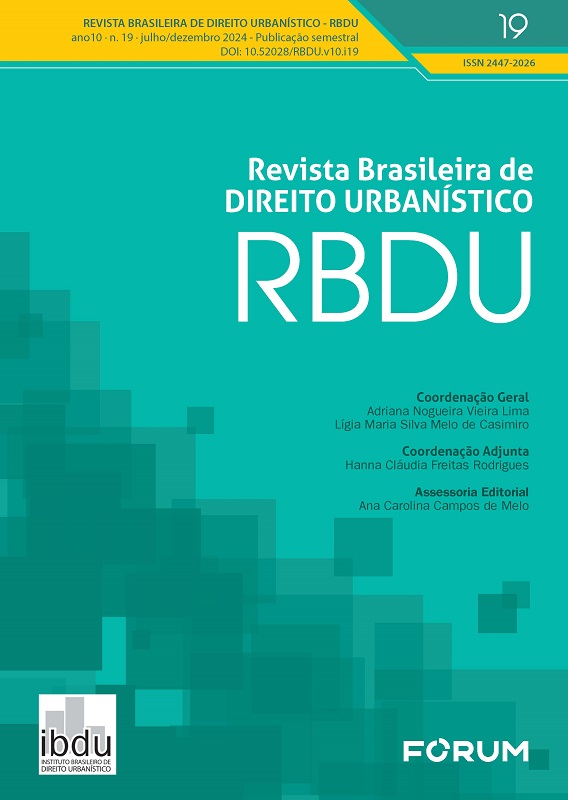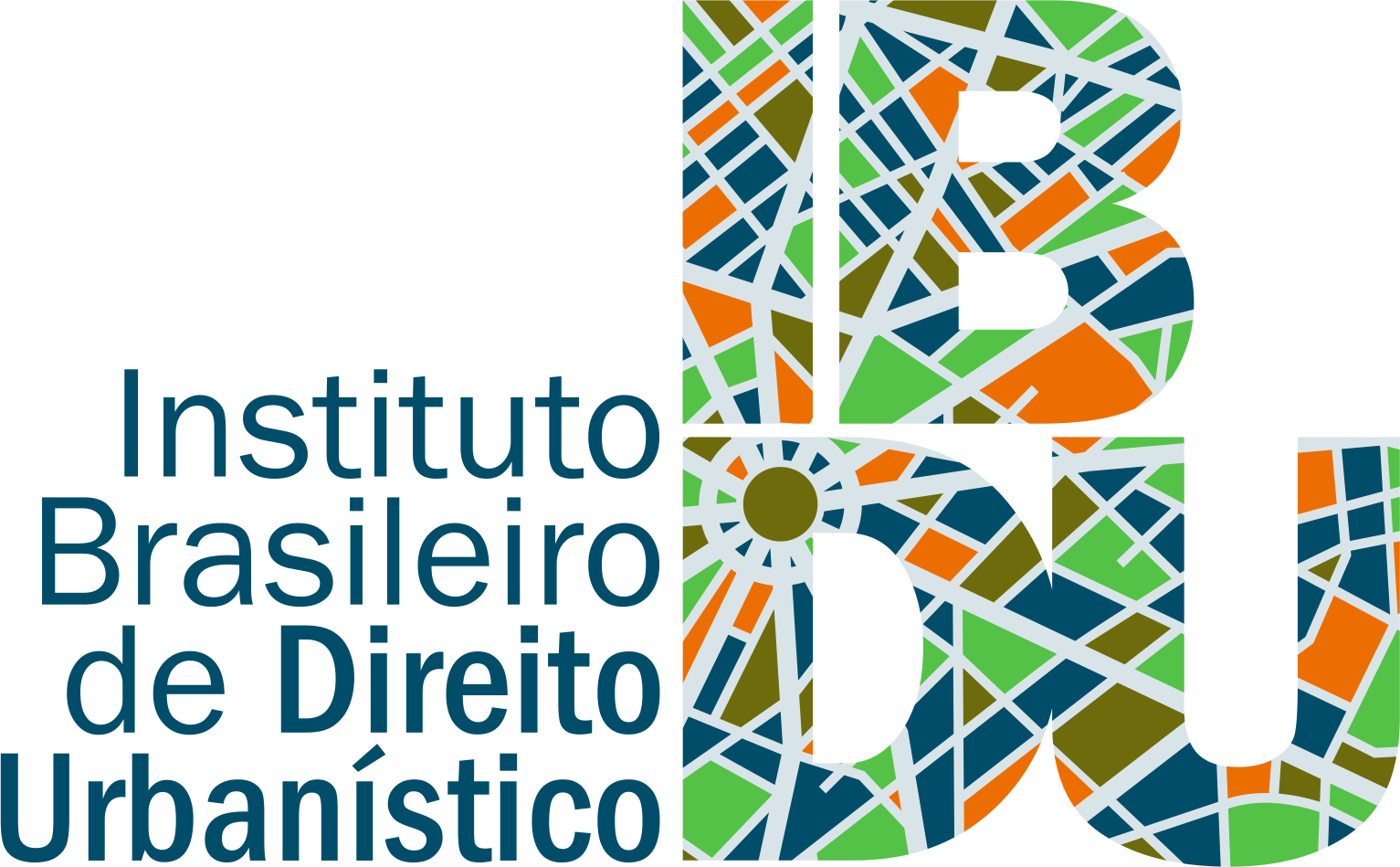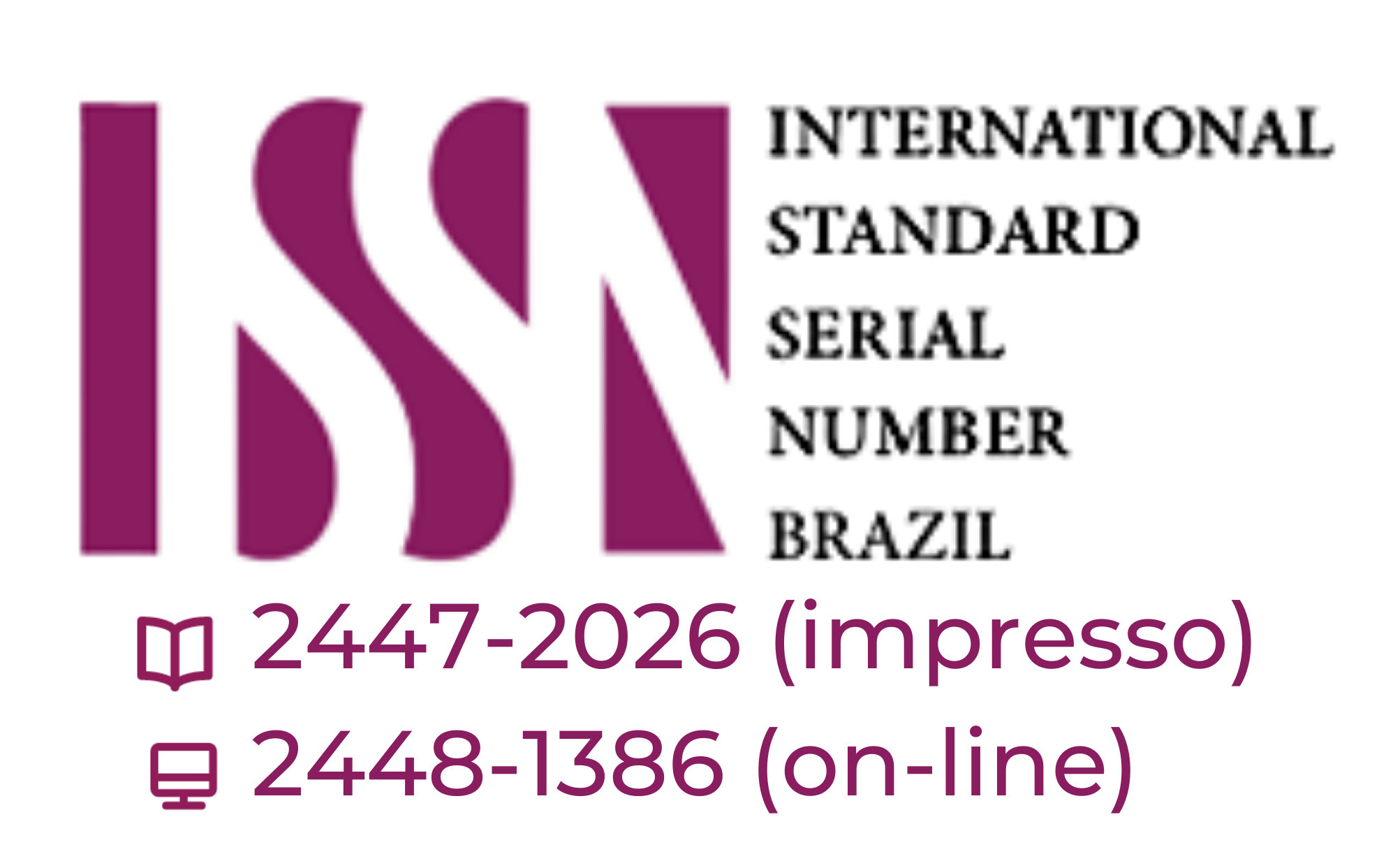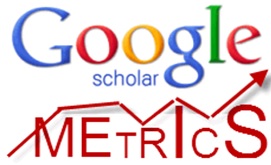Drenando desigualdades: uma análise do direito humano à água e saneamento básico nas áreas urbanas brasileiras
DOI:
https://doi.org/10.55663/RBDU.v10.i19-ART07Palavras-chave:
direito humanos, direito à água potávelResumo
Esta pesquisa examina a interseção entre o direito humano à água, a urbanização e o acesso ao saneamento básico no contexto brasileiro. Diante dos desafios crescentes e emergentes da sociedade contemporânea, especificamente, a crise hídrica mundial e seus impactos nas áreas urbanas. A presente investigação científica e acadêmica aborda a necessidade de garantir que todas as comunidades tenham acesso à água potável de qualidade e em quantidades suficientes, além de instalações sanitárias seguras e adequadas. A justificativa da presente pesquisa se dá a partir da contribuição científica nos campos dos Direitos Humanos, Geopolítica e Meio Ambiente. Entre os objetivos desta análise, se propõem: identificar a crise hídrica mundial como uma questão geopolítica; conceitualizar o direto humano à água; analisar os principais enfoques com relação à urbanização e acesso à água; contextualizar a questão do saneamento básico no Brasil e; identificar as principais desigualdades sociais e geográficas no acesso à água e saneamento básico no contexto brasileiro. A metodologia empregada nesta pesquisa segue o viés exploratório no método hipotético-dedutivo, a partir da análise de revisão bibliográfica documental. Por fim, se verifica a necessidade de ações e políticas direcionadas a concretização do direito humano a água e ao saneamento básico no Brasil.
Downloads
Referências
ARRETCHE, Marta. Trajetória das desigualdades: como o Brasil mudou nos últimos cinquenta anos. São Paulo: Editora UNESP, 2015.
BARBOSA, Vanessa. A última gota. São Paulo: Planeta, 2014.
BECK, Ulrich. The metamorphosis of the world: how climate change is transforming our concept of the world. Polity, 2016. Kindle edition.
BECK, Ulrich. Wold at risk. USA:Polity Press, 2009.
BORJA. J. La ciudad como espacio público y el movimento cidadano. In, Revolición urbana y Derechos cidadanos. Madrid: Alianza, 2013.
BRASIL. Lei n.º 10.257, de 10 de julho de 2001. Disponível em: https://www.planalto.gov.br/ccivil_03/leis/leis_2001/l10257.htm Acesso em: 12 fev. 2024.
BRASIL. Lei n.º 14.026, de 15 de julho de 2020. Disponível em: https://www.planalto.gov.br/ccivil_03/_Ato2019-2022/2020/Lei/L14026.htm#art6 Acesso em: 10 out. 2023.
BRASIL. Lei nº 11.445, de 5 de janeiro de 2007. Disponível em: https://www.planalto.gov.br/ccivil_03/_ato2007-2010/2007/lei/l11445.htm Acesso em 10 out. 2023.
BRASIL. Lei n.º 9.433, de janeiro de 1997. Disponível em: https://www.planalto.gov.br/ccivil_03/leis/l9433.htm Acesso em: 14 out. 2023.
BRK AMBIENTAL; INSTITUTO TRATA BRASIL. Women and sanitation. 2018. Disponível em: https://tratabrasil.org.br/wp-content/uploads/2022/09/brk-ambiental_instituto-trata-brasil_women-and-sanitation_EN.pdf Acesso em: 10 out. 2023.
CAPRA, Fritjof; LUISI, Pier Luigi. The systems view of life: a unifying vision. CA, USA: Cambridge University Press, 2014.
CANABARRO, Ivo; SCHONARDIE, Elenise F.; STRÜCKER, Bianca. A ressignificação do lugar e do não-lugar: considerações sobre as dimensões das ocupações dos lugares em um período de pandemia no brasil. In: Revista de Direito da Cidade. Rio de Janeiro, Vol. 14, N.01., 2022, p. 1-26.DOI: 10.12957/rdc.2022.54911| ISSN 2317-7721
CHELLANEY, Brahma. Water, peace, and war: confronting the global water crisis. New York: Rowman & Littlefield, 2015.
FAO. AQUASTAT - FAO's global information system on water and agriculture. Disponível em: https://www.fao.org/aquastat/en/overview/methodology/water-use Acesso em: 24 Set. 2023.
FAO. World food and agriculture: statistical yearbook 2022. Rome. Disponível em: https://www.fao.org/3/cc2211en/cc2211en.pdf Acesso em: 16 out. 2023.
FIECHTER-WIDEMANN, Evelyne; et al. The human right to water: justice . . . or sham?: the legal, philosophical, and theological background of the new human right to water. Eugene, Oregon: Wipf and Stock, 2017. Edição Kindle.
ICESCR. International Covenant on Economic, Social and Cultural Rights. (1966). Disponível em: https://www.ohchr.org/sites/default/files/cescr.pdf Acesso em: 05 fev. 2024.
INSTITUTO TRATA BRASIL. 66 milhões de brasileiros poderiam ser abastecidos
com a quantidade de água perdida nos sistemas de distribuição. 2022. Disponível em: https://tratabrasil.org.br/wp-content/uploads/2022/09/RELEASE_ESTUDO_DE_PERDAS_NA_DISTRIBUICAO_270522_-.pdf Acesso em: 11 out. 2023.
INSTITUTO TRATA BRASIL. Água. Disponível em: https://tratabrasil.org.br/principais-estatisticas/agua/ Acesso em: 11 out. 2023.
INSTITUTO TRATA BRASIL. Saúde. Disponível em: https://tratabrasil.org.br/principais-estatisticas/saude/ Acesso em: 12 out. 2023.
LEFEBVRE, Henri. Espaço e Política - o direito à cidade II. 2 ed. rev. e ampl. Belo Horizonte: Editora UFMG, 2016.
PLANSAB. Plano nacional de saneamento básico. Disponível em: https://www.gov.br/cidades/pt-br/acesso-a-informacao/acoes-e-programas/saneamento/plano-nacional-de-saneamento-basico-plansab Acesso em: 10 out. 2023.
MEKONNEN, Mesfin; HOEKSTRA, Arjen Y.; Four billion people facing severe water scarcity. Science Advances. Vol. 2, No. 2, 2016. Disponível em: https://www.science.org/doi/10.1126/sciadv.1500323 Acesso em: 12 out. 2023.
NORMAN, Donald A. Design for a better world: meaningful, sustainable, humanity centered. Cambridge, Massachusetts: The MIT Press, 2023.
PINKER, Steven. The enlightenment now: the case for reason, science and humanism. United Kingdom: Penguin Random Science, 2019.
SAAVEDRA, Fernando Estenssoro. História do debate ambiental na política mundial 1945-1992. Trad.: Daniel Rubens Cenci. Ijuí: Editora Unijuí, 2014.
SNIS. Sistema nacional de informação sobre saneamento 2021. Disponível em: http://antigo.snis.gov.br/painel-informacoes-saneamento-brasil/web/painel-setor-saneamento Acesso em: 10 out. 2023.
SNIN. Abastecimento de água 2021. Disponível em: http://antigo.snis.gov.br/painel-informacoes-saneamento-brasil/web/painel-abastecimento-agua Acesso em: 11 out. 2023.
STURZA, Janaína Machado; TONEL, Rodrigo. Os desafios impostos pela pandemia COVID-19: das medidas de proteção do direito à saúde aos impactos na saúde mental. Revista Opinião Jurídica, Fortaleza, v. 18, n. 29, p. 1-27, set./dez. 2020.
UN COMMITTEE ON ECONOMIC, SOCIAL AND CULTURAL RIGHTS. General comment no. 15: the right to water (arts. 11 and 12 of the covenant). (2003). Disponível em: https://www.refworld.org/legal/general/cescr/2003/en/39347 Acesso em: 06 fev. 2024.
UNEP. Food waste index report 2021. Nairobi. Disponível em: file:///D:/Usu%C3%A1rio/Downloads/FoodWaste.pdf Acesso em: 15 out. 2023.
UNICEF. As múltiplas dimensões da pobreza na infância e na adolescência no brasil. 2023. Disponível em: https://www.unicef.org/brazil/media/22676/file/multiplas-dimensoes-da-pobreza-na-infancia-e-na-adolescencia- Acesso em: 11 out. 2023.
UNICEF. Water and sanitation: supplies and services that provide access to clean water, basic toilets and good hygiene can save children’s lives. Disponível em: https://www.unicef.org/supply/water-and-sanitation#:~:text=Worldwide%2C%20844%20million%20people%20lack,that%20cause%20life%2Dthreatening%20diseases. Acesso em: 08 out. 2023.
UNITED NATIONS. Report of the united nations conference on the human environment. Stockholm, 5-16 June 1972. Disponível em: https://documents-dds-ny.un.org/doc/UNDOC/GEN/NL7/300/05/PDF/NL730005.pdf?OpenElement Acesso em: 08 out. 2023.
UNITED NATIONS. Resolution adopted by the general assembly on 28 july 2010: 64/292. The human right to water and sanitation. Disponível em: https://documents-dds-ny.un.org/doc/UNDOC/GEN/N09/479/35/PDF/N0947935.pdf?OpenElement Acesso em: 25 set. 2023.
UNITED NATIONS. The right to food – CHR Special Rapporteur (Ziegler) preliminary report under CHR/RES/2001/25. (2001). Disponível em: https://www.un.org/unispal/document/auto-insert-187548/#:~:text=In%20its%20resolution%202001%2F25%2C%20the%20Commission%20on%20Human%20Rights,interdependence%20of%20that%20issue%20and Acesso em: 05 fev. 2024.
UNITED NATIONS. Water. Disponível em: https://www.un.org/en/global-issues/water#:~:text=Water%20is%20at%20the%20core,and%20for%20human%20survival%20itself. Acesso em: 24 set. 2023.
UNITED NATIONS. The sustainable development goals report. 2019. Disponível em: https://unstats.un.org/sdgs/report/2019/The-Sustainable-Development-Goals-Report-2019.pdf?_gl=1*cri48k*_ga*MTEyODcyNzc0NC4xNjk1NTgxNTYx*_ga_TK9BQL5X7Z*MTY5NTU4MTU2MC4xLjEuMTY5NTU4MjE0Ni4wLjAuMA..#page=36 Acesso em: 24 set. 2023.
UNISDR. The human cost of weather related disasters 1995 – 2005. Disponível em: https://www.unisdr.org/2015/docs/climatechange/COP21_WeatherDisastersReport_2015_FINAL.pdf Acesso em: 24 set. 2023.
VIDAL, Alain; HARRINGTON, Larry W.; FISHER, Myles J. Water scarcity and abundance, water productivity and their relation to poverty. In: HARRINGTON, Larry W.; FISHER, Myles J. (Editors). Water scarcity, livelihoods and food security: research and innovation for development. p. 15 – 44. New York: Routledge, 2014.
WELZER, Harald. Guerras climáticas: por que mataremos e seremos mortos no século 21. Trad.: William Lagos. São Paulo: Geração Editorial, 2010.
WINKLER, Inga. The human right to water: significance, legal status and implications for water allocation. London: Bloomsbury Publishing PLC, 2014.
WORLD HEALTH ORGANIZATION. Almost 2 billion people depend on health care facilities without basic water services – WHO, UNICEF. 2020. Diponível em: https://www.who.int/news/item/14-12-2020-almost-2-billion-people-depend-on-health-care-facilities-without-basic-water-services-who-unicef Acesso em: 24 set. 2023.
WORLD HEALTH ORGANIZATION. Drinking-water. 2023. Disponível em: https://www.who.int/news-room/fact-sheets/detail/drinking-water Acesso em: 24 set. 2023.
WORLD HEALTH ORGANIZATION. Sanitation. 2022. Disponível em: https://www.who.int/en/news-room/fact-sheets/detail/sanitation Acesso em: 24 set. 2023.
WORLD HEALTH ORGANIZATION. The human right to water and sanitation. Disponível em: https://www.un.org/waterforlifedecade/pdf/human_right_to_water_and_sanitation_media_brief.pdf Acesso em: 11 out. 2023.
WORLD HEALTH ORGANIZATION. The right to water. (2003). Disponível em: https://www2.ohchr.org/english/issues/water/docs/Right_to_Water.pdf Acesso em: 06 fev. 2024.
Downloads
Publicado
Como Citar
Edição
Seção
Licença
Copyright (c) 2024 Revista Brasileira de Direito Urbanístico | RBDU

Este trabalho está licenciado sob uma licença Creative Commons Attribution-NonCommercial-NoDerivatives 4.0 International License.
Este periódico é licenciado por Creative Commons (CC-NC-ND-4.0 Internacional). A submissão e a publicação de artigos são gratuitos; Trabalhos avaliados por pares duplas cegas; o periódico utiliza o CrossCheck (antiplágio); e cumpre com o Guia dos Editores da COPE - Committee on Publication Ethics, além das recomendações Elsevier e SciELO. Veja os Termos da Licença Pública Creative Commons Atribuição-NãoComercial-SemDerivações 4.0 Internacional














